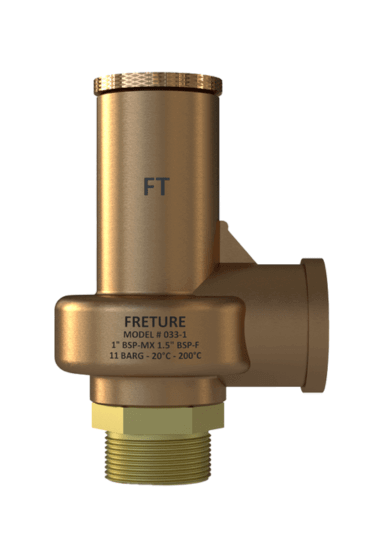In industrial operations, maintaining safe and efficient working conditions is paramount. Among the various components designed to ensure safety and operational integrity, safety valves play a critical role. These valves are essential in protecting equipment, personnel, and the environment from the potential hazards associated with overpressure situations. This article delves into the importance of safety valves in industrial operations, highlighting their functions, applications, and the reasons why they are indispensable.
Critical Functions of Safety Valves
Safety valves are primarily designed to automatically release pressure from a system when it exceeds a predefined limit. This automatic release is crucial for several reasons:
Prevention of Equipment Damage: Overpressure can cause significant damage to industrial equipment, leading to costly repairs and downtime. Safety valves help prevent such scenarios by releasing excess pressure before it reaches a dangerous level.
Protection of Personnel: High-pressure situations can pose severe risks to personnel, including potential explosions or the release of hazardous materials. Safety valves mitigate these risks, ensuring a safer working environment.
Environmental Safety: In industries dealing with hazardous substances, the uncontrolled release of pressure can lead to environmental contamination. Safety valves help contain such risks, protecting the surrounding environment.
Applications of Safety Valves in Various Industries
Safety valves are used across a wide range of industries, each with specific requirements and applications:
Oil and Gas Industry: Safety valves are critical in preventing overpressure in pipelines, storage tanks, and processing units, ensuring the safe handling of volatile substances.
Chemical Processing: In chemical plants, safety valves prevent the accidental release of hazardous chemicals, maintaining safe operational conditions.
Power Generation: Safety valves in power plants protect boilers and other pressure vessels from overpressure, ensuring the continuous and safe generation of energy.
Food and Beverage Industry: In this sector, safety valves are used to maintain the integrity of processing systems and to prevent contamination by ensuring proper pressure regulation.
Pharmaceuticals: Safety valves ensure that pressure levels in pharmaceutical manufacturing processes remain within safe limits, protecting both the product and the equipment.
Importance of Regular Maintenance and Testing
To ensure their effectiveness, safety valves must be regularly maintained and tested. This involves routine inspections, calibration, and testing to confirm that the valves will function correctly in an overpressure situation. Regular maintenance helps in identifying potential issues before they lead to valve failure, thereby maintaining the safety and reliability of industrial operations.
Compliance with Standards and Regulations
Safety valves must comply with industry standards and regulations, such as those set by the American Society of Mechanical Engineers (ASME) and the International Organization for Standardization (ISO). Compliance ensures that the valves meet the necessary safety and performance criteria, providing confidence in their ability to protect against overpressure.
Conclusion
In conclusion, safety valves are indispensable components in industrial operations, providing critical protection against overpressure situations. They safeguard equipment, personnel, and the environment, ensuring the smooth and safe operation of industrial systems. Given their vital role, it is essential to select high-quality safety valves and maintain them properly.
Freture Techno Pvt. Ltd. is a leading safety valve manufacturer in Mumbai, India, known for their commitment to quality and reliability in providing safety solutions for various industrial applications.





No comments:
Post a Comment